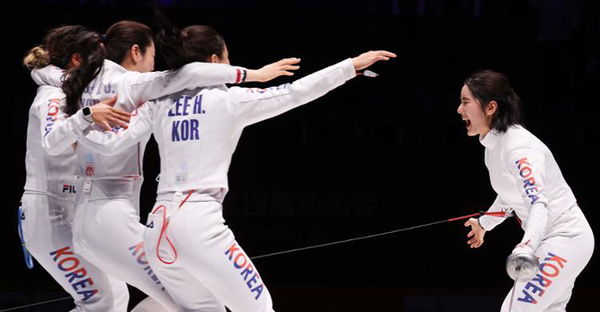

The 2024 Summer Olympics are underway, and Paris is set to welcome elite athletes with an opening ceremony featuring stars like Snoop Dogg and Salma Hayek. The US fencing team comprises 20 athletes across five squads: women’s epee, women’s foil, men’s foil, women’s saber, and men’s saber, including 8 returning competitors and new Olympians. The fencing events run from July 27 to August 4, promising an exciting spectacle. As the anticipation builds, fencing enthusiasts eagerly await to see their favorite athletes compete.
Beyond the thrilling bouts lies an often-overlooked aspect: the financial realities of the fencers. Their journeys, marked by years of training and dedication, are as demanding as they are inspiring. But how does this dedication translate into their earnings? In this article, we explore the average salaries of male and female fencers, uncovering the economic side of a sport steeped in tradition and precision.
ADVERTISEMENT
Article continues below this ad
How much does an Olympic fencer earn?
The remuneration earned by an Olympic fencer depends mostly on their country of origin and how successful they are. This opens up sponsorship opportunities and brand deals, further enhancing their financial portfolio and allowing them to earn beyond the fixed prize money from competitions. The Paris 2024 Olympics fencing team has been promised by the US Olympic and Paralympic Committee (USOPC) that gold medalists will receive $37,500, silver medalists can expect $22,500, and bronze medalists are entitled to $15,000.

ADVERTISEMENT
Article continues below this ad
Moreover, there are individual competitions with larger payouts. For example, a second-place finish in the men’s foil can earn $80,000 from their government. They are also entitled to a share of the revenue generated from the sale of Paris Olympics fencing tickets. Furthermore, Olympic athletes benefit from sponsorships and stipends that reflect their world ranking. Those ranked in the top 4 globally earn around $3,400 per month as part of the 2022 DAS & EAHI Travel Funding.
However, this of course is not enough to fund the expenses of types of equipment and the costs of travelling to various meets. The athletes competing this time have had to travel across the globe to the Paris Olympics fencing venue. But sponsorships are rare for fencers as even the top ones expect less than $100,000 annually as compared to the millions of dollars to be made in other sports. Fencing is undoubtedly one of the most expensive sports.
What’s your perspective on:
Why are male fencers still earning more than female fencers in 2023? Time for a change?
Have an interesting take?
ADVERTISEMENT
Article continues below this ad
Fencing is considered as one of the most expensive Olympic sport
This sport is very costly. The expenses for equipment, coaching fees, travel, and tournament participation can add up, often putting athletes in debt. For an athlete participating in fencing at the Paris Olympics, the costs can reach up to $20,000. The specialized gear, including swords (foil, epee, or saber), masks, jackets, gloves, and protective clothing, needs regular replacement and upgrades, adding to the expense. These costs can be somewhat offset by placing them at various events. There are multiple fencing meets at the local, regional, state, and national levels each year, with the Junior Olympics and the Summer Nationals being the two most significant championships.
The USOPC invests around $2.5 million annually in grants to Team USA athletes to help cover their living expenses, training, and healthcare costs. However, the equipment itself is expensive. Weapons, masks, uniforms, and protective gear cost at least $800, with Federation Internationale d’Escrime (FIE) standards adding around $1,600. National tournaments cost between $1,000 and $3,000 per event, sometimes escalating to over $5,000. The total annual costs for dedicated competitive fencers range from $20,000 to $45,000, which can strain a fencer’s finances. These challenges make the upcoming competitions at the Paris Olympics all the more remarkable.
ADVERTISEMENT
ADVERTISEMENT
ADVERTISEMENT
ADVERTISEMENT


Why are male fencers still earning more than female fencers in 2023? Time for a change?